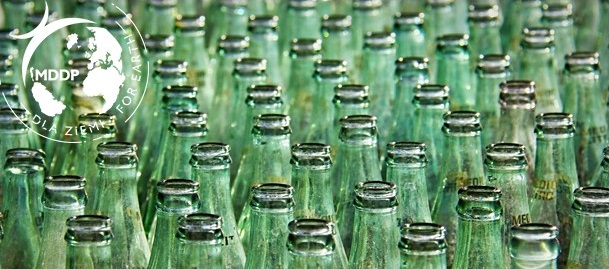Beverage bottle deposit system means significant changes for producers of beverages, shop chains, shop owners and us, consumers
On 31 January 2022 public consultation was launched for the long-awaited Bill implementing the framework for a bottle deposit system in Poland. This is yet another proposal following draft regulations implementing to some extent the single-use plastics (SUP) directive and the extended producer responsibility (EPR) waste directive in order to systemically adjust waste packaging management to the EU regulations.
The proposals are not currently consistent, or there are outright serious doubts about their compliance, with the EU law as to the ultimate scope of the system participants’ planned obligations. Obviously, the penalties for non-compliance are extremely high.
We recommend reading our newsletter, so that you can get prepared for the oncoming changes in the legal and tax environment
What is about to change?
- The deposit system will cover only (non-alcoholic and alcoholic) beverages
The Bill clearly indicates that the deposit system will apply only to bottles for beverages, deemed to be as liquid intended for consumption, in particular juice, nectar, yoghurt, and any other drinkable milk product or alcoholic beverage. The definition can be assumed to also contain beverages such as water and food conditioners/dietary supplements.
- The deposit system will cover only beverages in glass and plastic bottles
The system is to apply only to beverages in disposable plastic bottles of up to 3 litres and in reusable glass bottles of up to 1.5 litres. The bottle deposit system will not cover disposable glass bottles.
- This will entail important obligations for shops, depending on their floor area
Shops will have to participate in the system with varying degrees, meaning an obligation to charge or pay for the deposit, and/or to collect empty containers and waste packaging.
- The deposit system will force the development of shops’ waste infrastructure
In addition to complicated reporting obligations, many shops – including shop chains – will have to urgently start working on building appropriate waste infrastructure, which may well be difficult or sometimes next to impossible.
- The deposit system is to be established by entrepreneurs themselves
Entities placing products on the market will organize the bottle deposit system themselves, first of all by way of appointing their representatives and then by joining the system established by those representatives or potentially by joining the existing deposit system. No participation in the system will be tantamount to the obligation to pay a product fee, i.e. a penalty.
- A penalty of up to PLN 1 million may be imposed for lack of an appropriately functioning deposit system
The failure to collect containers and waste packaging or to ensure transport of containers to the producer or transport of waste packaging to the processing plant will entail a penalty of up to PLN 1 million.
- All those actions will give rise to tax consequences – both in terms of VAT and income taxes. Of importance will be to determine: the revenue generation time, the cost recognition possibility and time, the qualification of the deposit for VAT and CIT purposes, and the determination of fiscal documentation.
- The new deposit system will require changes in tax reporting and VAT settlements. The deposit model will apply both to reusable and disposable containers. The current VAT regulations specifically govern the settlements of reusable containers. However, in the light of the proposals at hand, they will be far too insufficient, therefore a significant amendment to the regulations should be expected, similar to those applicable to the tax base and tax subject. Thus, for producers using both container types, the new deposit model will entail the need to use separate reporting and settlement methods.
- For the new (e.g. logistic and storage) developments connected with the performance of the deposit system obligations, whether for internal or commercial purposes, indirect support measures such as income tax reliefs should be borne in mind. The costs of developing new or improved solutions, including investments in process automation, might be deductible as part of the research & development relief, the robotization relief or the development relief. Appropriate preparation would be expedient before any actions are taken.
We will be happy to assist if you have any questions about the impact of the deposit system consequences on your operations or about the scope of your new obligations.
*****
If you are interested in the above information and its impact on your business, please contact the MDDP Green Tax Team and Environmental Transformation Team:
Monika Dziedzic Monika.Dziedzic@mddp.pl phone 501 104 156
Sylwia Fik-Tarasiuk Sylwia.Fik-Tarasiuk@mddp.pl phone 503 973 567
or your advisor at MDDP.

